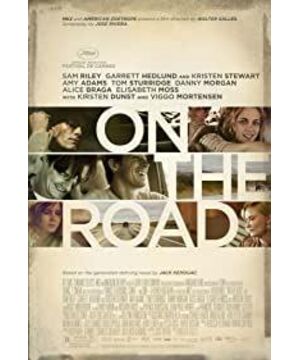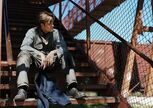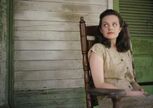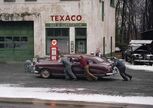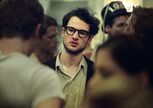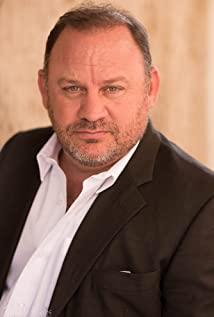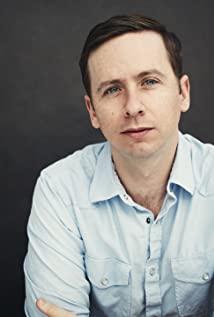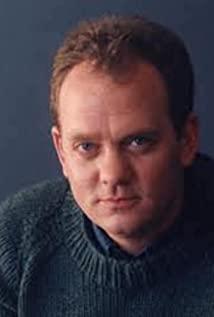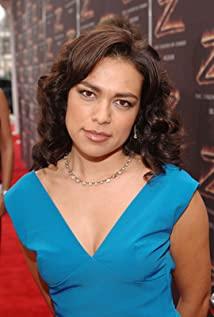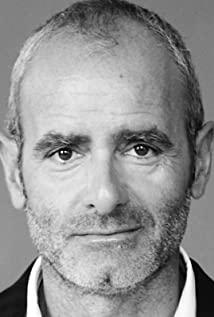Based on the previous boring "on the road novels", I don't expect "On the Road" to be good. I watched its movies first, and I watched it all night. The plots included smoking marijuana, smoking and drinking, writing novels, being poor, having sex, being gay, and so on. In the last scene, Dean said "I still love you" and suddenly changed into a touching atmosphere, and then ended. (When I watched it again later, Dean said, "Sal, I still love you" was really moving.)
"On the Road" describes the protagonist, Sal, following Dean in a realistic style, going through a mess of absurd life, and finally parting ways. It joins Mark Twain's The Adventures of Huckleberry Finn and Fred Scott Fitzgerald's The Great Gatsby as novels that interrogate the promise of the American Dream and personal freedom . It represents the spiritual beliefs of the "Beat Generation" in the 1940s and 1950s.
To sum up briefly, the first part of "On the Road" tells about what happened to me on the way to Dean, probably for the purpose of precipitation and comparison with the happiness of my life with Dean; the second part is about Dean's sex and love. Life and his inferior situation define the character; the third part is about Dean and I wandering in the city outside the law and morality for fun (finding the city is a paradise of disappointment), and their desperate escape from the constraints of reality; The fourth part tells that Dean and I went to Mexico for fun and found spiritual freedom and belief, and Dean "abandoned" me for himself as always; the fifth part tells me that I returned to a normal, peaceful life and refused contact Dean.
I've loved this novel since the first one, because it has no morals or mainline at all, you follow Thrall through a life without money, across legal and moral boundaries, and a thrill-seeking series of events. A major feature is that you have no time to think, only experience; each paragraph actually simplifies many details, and each paragraph can be written in detail into a short story of 5,000 words. I like this simple narrative, romantic narrative. It chases the deeds of the middle and lower classes, but instead of telling them in the same way, it gives them dreams, freedom, and pursuits. They don’t just live in the moment, they live in their beliefs. They were disloyal to a certain political concept, and they wrote about stealing, robbing, poisoning, and prostitution. I finally got a feeling that "the original book can also be written in this way", and gradually turned faster and faster. When I read the book, it alternated with the plot of the movie.
The movie has been cut so much that without reading the book you don't understand why the plot unfolded the way it did. So watching the movie after reading the book can deepen the impression of the plot. It seems that this book was completed within a dozen days after the author's four-year experience.
There are a lot of characters in the book (not just too many!), some in just one chapter, some in just a few paragraphs, and some across dozens of pages. Of course, I don't go to great lengths to remember the characters, I just recognize the names with a slight impression, so every time I see a familiar name, it seems that I have seen someone I have seen before, and there is a feeling of "following the protagonist to a dreamlike wandering". And you will feel that those people are passing by in your memory, they are only responsible for having fun with you, and in the end you are only left alone.
After the movie, when I was going to the concert, Dean suddenly came over and said "I got a free ride for five days and five nights just to come and see you"; the fifth part of the book, "...just thinking about Dean, Trying to figure out how he got back on the train and traveled three thousand miles in that desolate land, I don't understand why he's here other than to look at me." It touched my tear ducts.
"On the Road" narrates 5 years of wasted time, and there are no fighting scenes like the common Chinese youth novels (how many youth novels and movies are for youth, and there is always no reason for the characters to punch a punch or two); He will not entrust "Jilai" on money issues (the main characters will not be children of rich families, they rely on themselves to make money or even steal, and even the origin of a car is well-founded); completely face crime, No judgment, because judgment is our reader's business (how many writers teach readers judgment in the form of "events + attitudes?").
I like this book very much. On the surface, it talks about the insolence of the "Beat Generation", but in essence it tortures life and beliefs. In today's era of profit-seeking, how many people are shackled to themselves? Once they have money they will just find ways to find more money, never knowing what they need.
In the first, there's a passage like "This is what I wanted to do in Hollywood — my last night in Hollywood, and I was smearing mustard on a sandwich on my knees behind the parking lot toilet." It was the first time I felt the illuminating narrative of this book (previously the main character went to Hollywood with a screenplay and failed). I personally think that what it wants to say is that the reason why this generation "breaks" is not from reality?
...
In the end, I settled my life and refused to take Dean to a certain place. In a sense, I also rejected the life that I used to believe in and chose to be ordinary.
Speaking of ordinary, I have to compare it with Han Han's "There will be no period". The fight scene in "No Period" is too lazy to complain. The most disappointing thing is that its wonderfulness lies in the lines more than in the picture, which makes In addition to experiencing a few jokes and accidents, people reprint those interesting lines on the Internet. Going all the way to the end of the fault-like plot, you will find that it really "will be indefinite". If you compare it with "On the Road", I think "On the Road" is more realistic, especially in "why you hit the road", "problems encountered when you hit the road", torture of youth and freedom, about dreams and other issues. more realistic and dramatic.
Finally, there is this line of English on the bookmark: …you could call my life on the road, prior to that i'd always dreamed of… I am scumbag in English, and Baidu translation is not smooth, so I understand it like this: you can always dream of Call me back on the road, because this is what I've been looking forward to for so long. This is probably the unwillingness of being hesitant after being ordinary.
View more about On the Road reviews


